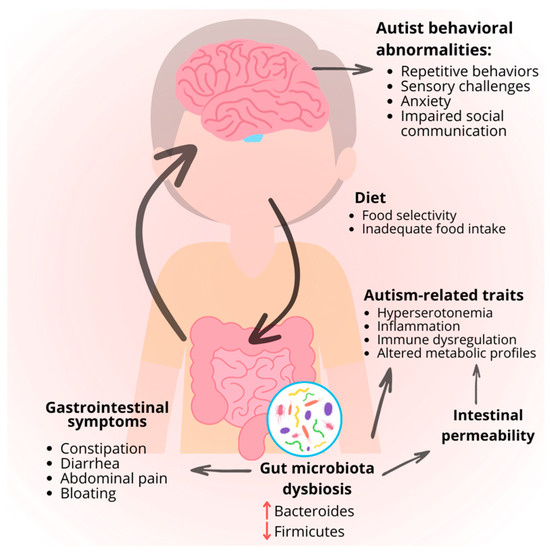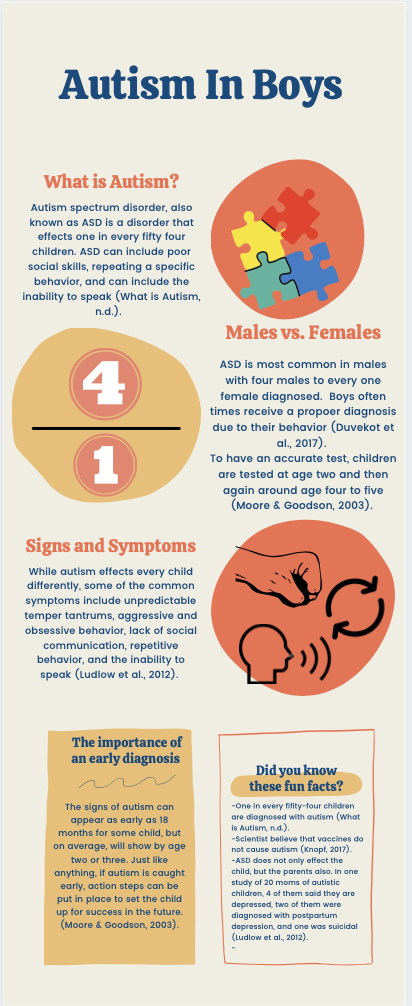Does Autism Behavioral Therapy deliver results? Find out how
Does Autism Behavioral Therapy deliver results? Find out how
Blog Article
Comprehending the Influence of Behavioral Autism on Day-to-day Live and Social Communications
You might not realize how deeply behavior autism affects day-to-day live and social communications. People on the range commonly browse a globe filled up with interaction difficulties and sensory overload. These obstacles can cause frustration and seclusion, affecting their relationships and general health. Comprehending these subtleties is crucial for promoting encouraging atmospheres. What strategies can we apply to develop more comprehensive areas and significant links? The solutions might surprise you.
Specifying Behavioral Autism and Its Characteristics
Behavioral autism, commonly described as autism spectrum condition (ASD), encompasses a series of problems defined by difficulties in social interaction, communication, and recurring actions. You may observe that individuals with ASD often struggle to interpret social signs, which can lead to misconceptions in discussions. They may find it tough to establish eye get in touch with or participate in little talk, making social circumstances feel frustrating.
Interaction difficulties can manifest in various methods, from postponed speech advancement to a preference for utilizing less words. Recurring habits, such as hand-flapping or rocking, can act as coping mechanisms to manage anxiety or sensory overload. These qualities can profoundly influence day-to-day live, making it crucial for you to comprehend and sustain those with ASD. By acknowledging these traits, you can cultivate an atmosphere that promotes acceptance and urges effective communication, assisting individuals with autism grow in their day-to-day interactions.
The Range of Autism: Comprehending Irregularity in Habits
Autism spectrum problem (ASD) isn't a one-size-fits-all medical diagnosis; it varies extensively amongst people. You might encounter people who are highly spoken and engage easily in conversations, while others could choose solitary activities or communicate non-verbally.
Additionally, the means people with ASD react to sensory input can vary substantially; some may be overwhelmed by brilliant lights or loud sounds, whereas others grow in boosting atmospheres. The spectrum likewise consists of distinctions in social interactions; some individuals may battle to analyze social signs, while others browse social setups with family member convenience. Comprehending this irregularity is essential, as it aids you appreciate everyone's distinct experience and tailor support to their certain needs, cultivating an extra inclusive setting for everyone.
Interaction Difficulties Faced by People With Autism
When you communicate with people on the autism range, you may observe their one-of-a-kind interaction obstacles. They frequently encounter troubles with both spoken and nonverbal hints, which can impact their social interactions. Recognizing these barriers is crucial for cultivating far better connections and assistance.

Verbal Communication Difficulties
Many individuals on the autism spectrum experience verbal communication troubles that can considerably impact their everyday interactions. Your rate, tone, or quantity may not straighten with social assumptions, causing others to misunderstand your intentions. Recognizing these obstacles can aid you and your assistance network establish strategies to enhance communication and promote better links with others in your day-to-day life.
Nonverbal Communication Barriers
Verbal interaction isn't the only obstacle people on the autism spectrum face; nonverbal communication barriers can be equally as substantial. You may discover it difficult to interpret body movement, facial expressions, and eye contact, which are vital for effective communication. These difficulties can cause misconceptions or false impressions of social cues, making interactions really feel frustrating or complex. You might have a hard time to share your very own emotions with nonverbal ways, leaving others not sure of your sensations or intents. This detach can create sensations of seclusion and disappointment. Recognizing these obstacles is crucial for cultivating understanding and compassion in your interactions. By attending to nonverbal communication, you can find approaches to enhance your social experiences and enhance your total high quality of life.
Social Communication Influences
Social communications can usually feel frustrating due to the special interaction challenges dealt with by individuals with autism. You may deal with translating social cues, making it difficult to comprehend sarcasm or body language. This can cause misunderstandings or awkward moments in conversations. In addition, starting and keeping conversations may feel tough, causing anxiousness in social circumstances. You might prefer organized atmospheres, making spontaneous interactions unpleasant. It's also typical to experience trouble in participating in small talk, which can impede developing new friendships. Recognizing these difficulties can help you discover strategies to boost interaction, such as practicing social abilities in secure setups or making use of aesthetic help - Aba Therapist. Comprehending your needs permits you to browse social interactions with higher confidence and ease.
Social Interaction and Relationship Building in Autism
While building partnerships can be challenging for individuals with autism, recognizing their distinct point of views and communication styles can cultivate meaningful connections. You could discover that many individuals on the range prefer straight interaction and may fight with social hints or tiny talk. By being straightforward in your interactions, you can aid produce a setting where they really feel comfortable.
Put in the time to observe and listen just how they express themselves. This understanding can lead you in steering discussions extra efficiently. Taking part in shared interests can likewise act as a bridge to deeper connections. Whether it's a hobby, a preferred program, or a common interest, these common strings can open up doors to friendship.
Life Regimen: Navigating Approaches and challenges
Steering every day life regimens can be specifically challenging for people with autism, specifically when unforeseen adjustments happen. You might find comfort in having a structured routine, as it helps you anticipate what's next. It's normal to really feel overwhelmed or nervous when disruptions happen. To navigate these difficulties, think about executing aesthetic timetables or checklists. These devices can supply clarity and confidence.
Developing a routine that consists of sensory breaks can additionally be valuable. You can intend short breaks throughout your day to charge. It's necessary to communicate with those around you, letting them know your choices and needs. This helps produce an understanding setting.
Last but not least, practice mindfulness techniques to take care of stress and anxiousness. Straightforward breathing workouts or basing methods can make a substantial difference. By incorporating these strategies, you can boost your day-to-day routine and reduce interruptions, making life feel a try these out lot more convenient.
Staminas and Capabilities of Individuals on the Autism Spectrum
Recognizing everyday life regimens is just one aspect of the autism experience. Several people on the autism range possess amazing strengths and abilities that set them apart.
Additionally, your memory abilities often shine, specifically in areas of passion. Autism Therapist. This propensity for keeping details can make you a beneficial resource in fields like innovation, art, or science. You might additionally display solid visual thinking, allowing pop over to this site you to imagine complicated concepts and fix issues artistically
In addition, your distinct viewpoint on the globe can foster compassion and understanding in others, enhancing social communications. Accepting these strengths not just increases your confidence yet additionally aids others value the varied talents you give the table.
Producing Comprehensive Environments for Individuals With Autism
Producing inclusive atmospheres for individuals with autism begins with developing sensory-friendly spaces that deal with their special needs. You can also cultivate possibilities for social interaction, helping to develop links and friendships. By making these changes, you'll add to an extra inviting atmosphere for everyone.
Designing Sensory-Friendly Spaces
While creating sensory-friendly spaces, it's crucial to reflect on the special requirements of individuals with autism. Begin by picking relaxing colors and soft lights to create a calming setting. Incorporate peaceful zones where individuals can retreat and charge when bewildered. You'll wish to lessen loud sounds and interruptions, utilizing soundproof products or white noise makers to aid keep tranquility. Take into consideration tactile components like soft materials or fidget-friendly objects that can provide comfort. Ascertain that areas are adaptable, permitting simple rearrangement to accommodate various tasks. Consist of visual schedules or clear signage to assist individuals browse the area with confidence. By thoughtfully incorporating these elements, you can develop a welcoming atmosphere that supports sensory demands and advertises total health.
Advertising Social Communication Opportunities
Creating sensory-friendly rooms not only addresses private convenience yet additionally sets the phase for significant social communications among people with autism. Encourage peer mentoring, coupling individuals with autism with supportive peers that can guide them via social situations. By carrying out these strategies, you can improve social chances, aiding individuals with autism construct relationships and strengthen their social skills in a secure, inviting setting.

Often Asked Questions
Exactly How Can Buddies Support A Person With Behavioral Autism?
You can sustain a close friend with behavioral autism by being patient, paying attention actively, and respecting their boundaries. Participate in tasks they take pleasure in, communicate honestly, and develop a comfy setting where they feel valued and comprehended.
What Resources Are Available for Parents of Kid With Autism?
You can check out numerous resources for moms and dads of children with autism, consisting of support system, academic web sites, and neighborhood social work. Getting in touch with various other moms and dads can also give useful insights and shared experiences to aid browse obstacles.
Can Behavioral Autism Change In Time?

Yes, behavior autism can alter in time. You might notice shifts in communication, social abilities, and behavior as your child grows. Early treatment and assistance often play site link important functions in these developing adjustments.
How Do Sensory Sensitivities Influence Every Day Life?
Sensory level of sensitivities can make day-to-day experiences overwhelming. You could deal with bright lights or loud noises, causing tension or avoidance. Discovering atmospheres that suit your demands can substantially improve your comfort and overall life.
What Prevail Misconceptions Concerning Behavioral Autism?
You may assume behavioral autism only affects interaction abilities, but it's more facility. Lots of think individuals lack empathy or intelligence, which isn't real. Comprehending these misunderstandings helps foster approval and assistance for those on the range.
Behavior autism, typically referred to as autism range condition (ASD), includes an array of problems identified by obstacles in social interaction, interaction, and repetitive behaviors.Social interactions can commonly really feel overwhelming due to the unique interaction challenges faced by people with autism.Creating sensory-friendly spaces not just addresses private comfort however likewise establishes the stage for meaningful social interactions among people with autism. Encourage peer mentoring, matching people with autism with helpful peers who can lead them with social scenarios. By executing these strategies, you can improve social opportunities, helping individuals with autism construct relationships and enhance their social abilities in a secure, inviting atmosphere.
Report this page